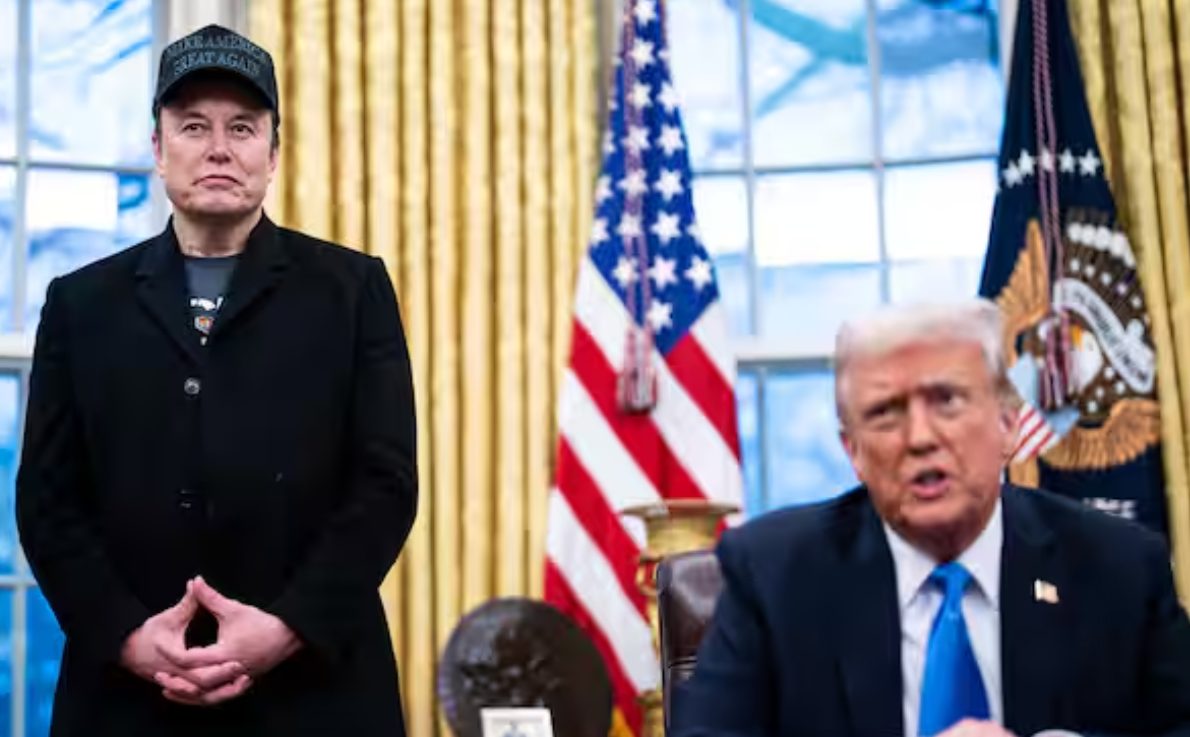Elon Musk vs Trump: A major political rift has surfaced in Washington as President Donald Trump’s sweeping new spending bill—described by him as a “big, beautiful bill”—faces strong and unexpected opposition from billionaire entrepreneur Elon Musk. What began as a friendly rapport between the two powerful figures turned into a public conflict that has captivated the nation.
Elon Musk vs Trump
A major political rift has surfaced in Washington as President Donald Trump’s sweeping new spending bill—described by him as a “big, beautiful bill”—faces strong and unexpected opposition from billionaire entrepreneur Elon Musk. What began as a friendly rapport between the two powerful figures turned into a public conflict that has captivated the nation.
On Wednesday, Elon Musk took to X (formerly Twitter), where he has over 200 million followers, urging Americans to take immediate action. “Call your senator, call your congressman. Bankrupting America is not okay. Kill the bill,” he wrote. This public denouncement came less than 24 hours after Musk and Trump had reportedly exchanged cheerful, supportive text messages.
At the center of the controversy is Trump’s ambitious 1,000+ page bill, a cornerstone of his second-term domestic agenda. The legislation proposes extending the tax cuts from his first term and boosting spending on border security and deportation operations. Trump has demanded unwavering Republican support for the bill.
However, the bill’s fiscal footprint has drawn sharp criticism. According to the nonpartisan Congressional Budget Office, the bill would add a staggering $2.4 trillion to the U.S. deficit over the next decade. Musk didn’t hold back, branding the bill as an “abomination” and warning that it sets the nation on a path to what he called “debt slavery.”
Despite the president’s command, the bill only narrowly passed the House last month—by a single vote—and now faces serious resistance in the Senate. It can only withstand three Republican defections, making the stakes especially high. GOP senators are under mounting pressure, caught between party loyalty and growing public and economic concerns.
Healthcare provisions within the bill have ignited further controversy. It introduces stricter work requirements for Medicaid recipients and mandates that states crack down on fraud and misuse. Critically, it imposes penalties on states that use their own funds to provide healthcare to undocumented immigrants. Experts warn that these measures could result in nearly 11 million people losing their health coverage.
Public outrage is growing. Republican Senator Joni Ernst was recently confronted by constituents alarmed over the Medicaid cuts. “People are not well. We all are going to die,” one attendee told her, highlighting the fear among vulnerable communities. Democrats have mockingly dubbed the legislation the “Well We’re All Going to Die Act,” pointing to its potentially dire consequences for millions of Americans.
The White House argues that the bill is essential to long-term fiscal stability, claiming it will ultimately reduce the deficit. However, whether this reassurance is enough to unite Senate Republicans behind the president remains uncertain, as the party grapples with internal divisions and as Elon Musk continues to amplify dissent.
The clash between President Trump and Elon Musk—two of the most influential voices in American politics and business—underscores a deepening divide over the country’s economic direction. With the Senate vote looming, the future of Trump’s legislative agenda—and America’s fiscal path—hangs in the balance.
Disclaimer:
This article is for informational purposes only and reflects publicly available statements, policy proposals, and opinions from involved individuals and entities. It does not constitute financial, political, or legal advice. Readers are encouraged to verify facts and consult official government sources or trusted news outlets for the most accurate and up-to-date information. The views expressed by public figures mentioned in this article do not reflect the views of this platform or its writers.

